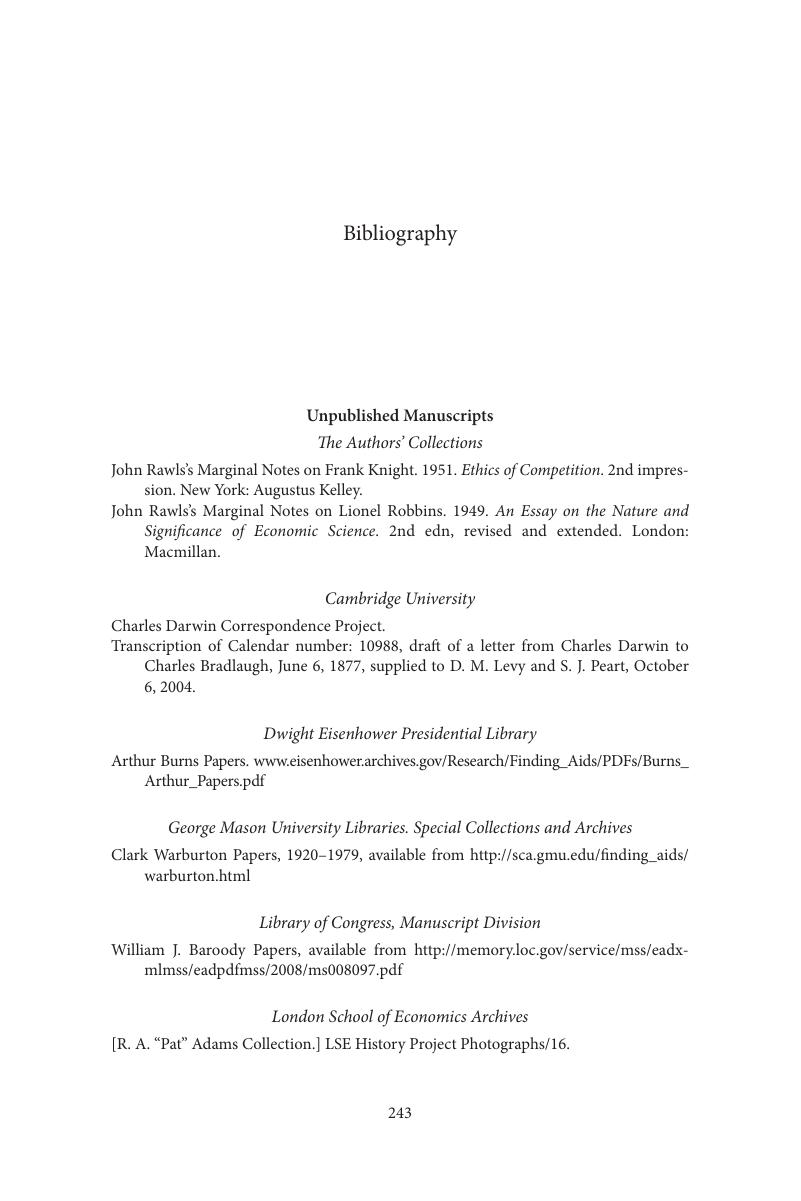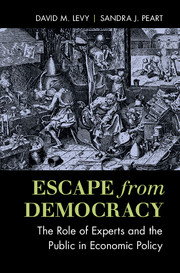Book contents
- Escape from Democracy
- Escape from Democracy
- Copyright page
- Dedication
- Contents
- Figures
- Tables
- Acknowledgments
- Part I Introductory Themes
- Part II The Discussion Tradition
- Part III When Linear Models Fail
- Part IV An End to Discussion
- Part V Getting the Best from Experts
- Part VI Conclusion
- Bibliography
- Index
- References
Bibliography
Published online by Cambridge University Press: 27 January 2017
- Escape from Democracy
- Escape from Democracy
- Copyright page
- Dedication
- Contents
- Figures
- Tables
- Acknowledgments
- Part I Introductory Themes
- Part II The Discussion Tradition
- Part III When Linear Models Fail
- Part IV An End to Discussion
- Part V Getting the Best from Experts
- Part VI Conclusion
- Bibliography
- Index
- References
Summary

- Type
- Chapter
- Information
- Escape from DemocracyThe Role of Experts and the Public in Economic Policy, pp. 243 - 264Publisher: Cambridge University PressPrint publication year: 2016



